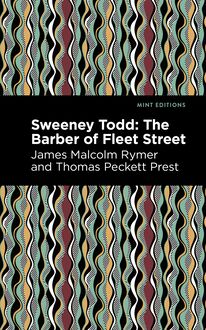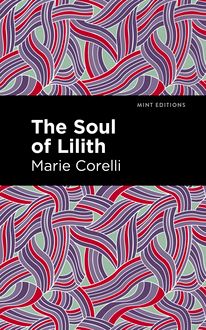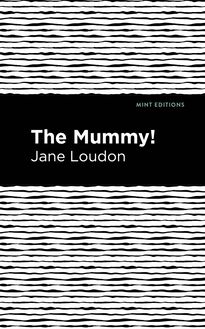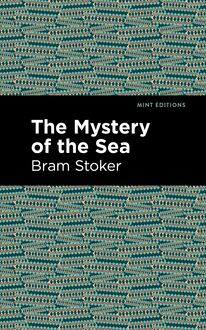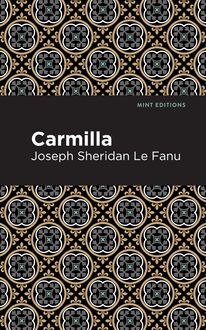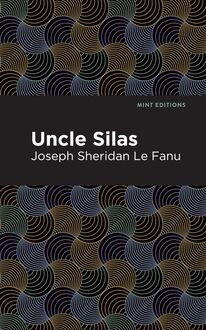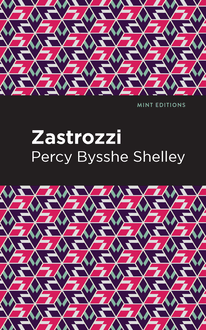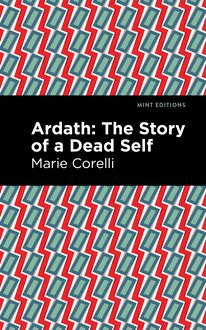-
 Univers
Univers
-
 Ebooks
Ebooks
-
 Livres audio
Livres audio
-
 Presse
Presse
-
 Podcasts
Podcasts
-
 BD
BD
-
 Documents
Documents
-
- Cours
- Révisions
- Ressources pédagogiques
- Sciences de l’éducation
- Manuels scolaires
- Langues
- Travaux de classe
- Annales de BEP
- Etudes supérieures
- Maternelle et primaire
- Fiches de lecture
- Orientation scolaire
- Méthodologie
- Corrigés de devoir
- Annales d’examens et concours
- Annales du bac
- Annales du brevet
- Rapports de stage
La lecture à portée de main

Vous pourrez modifier la taille du texte de cet ouvrage
Découvre YouScribe en t'inscrivant gratuitement
Je m'inscrisDécouvre YouScribe en t'inscrivant gratuitement
Je m'inscrisEn savoir plus
Vous pourrez modifier la taille du texte de cet ouvrage
En savoir plus

Description
After meeting a mysterious stranger, a sickly woman drinks a powerful potion that opens her eyes, heart and mind to the wonders of the supernatural. Once she’s been exposed, she’s eager to learn more about the spiritual world.
A Romance of Two Worlds follows a young woman who struggles with a serious health condition. Despite her doctor’s best efforts, they are unable to provide a cure or any long-term relief. In an attempt to ease her physical and emotional pain, she goes on vacation and encounters a stranger called Raffello Cellini. He has a divine energy and supplies the woman with a potion that leads to a spiritual awakening. She develops a thirst for knowledge and experience that can only be quelled by one figure—God.
A Romance of Two Worlds was Marie Corelli’s first novel, which set the tone for her subsequent works. Her stories are infused with various themes that often conflict with one another. This novel is a unique and captivating debut from one of the most read authors of the late-nineteenth and early-twentieth centuries.
With an eye-catching new cover, and professionally typeset manuscript, this edition of A Romance of Two Worlds is both modern and readable.
Sujets
Informations
| Publié par | Mint Editions |
| Date de parution | 09 mars 2021 |
| Nombre de lectures | 0 |
| EAN13 | 9781513278162 |
| Langue | English |
| Poids de l'ouvrage | 2 Mo |
Informations légales : prix de location à la page 0,0500€. Cette information est donnée uniquement à titre indicatif conformément à la législation en vigueur.
Extrait
A Romance of Two Worlds
Marie Corelli
A Romance of Two Worlds was first published in 1886.
This edition published by Mint Editions 2021.
ISBN 9781513277752 | E-ISBN 9781513278162
Published by Mint Editions®
minteditionbooks.com
Publishing Director: Jennifer Newens
Design & Production: Rachel Lopez Metzger
Project Manager: Micaela Clark
Typesetting: Westchester Publishing Services
C ONTENTS P ROLOGUE I. A N A RTIST ’ S S TUDIO II. T HE M YSTERIOUS P OTION III. T HREE V ISIONS IV. A D ANCE AND A P ROMISE V. C ELLINI ’ S S TORY VI. T HE H OTEL M ARS AND ITS O WNER VII. Z ARA AND P RINCE I VAN VIII. A S YMPHONY IN THE A IR IX. A N E LECTRIC S HOCK X. M Y S TRANGE D EPARTURE XI. A M INIATURE C REATION XII. S ECRETS OF THE S UN AND M OON XIII. S OCIABLE C ONVERSE XIV. T HE E LECTRIC C REED XV. D EATH BY L IGHTNING XVI. A S TRUGGLE F OR THE M ASTERY XVII. C ONCLUSION A PPENDIX
P ROLOGUE
W e live in an age of universal inquiry, ergo of universal scepticism. The prophecies of the poet, the dreams of the philosopher and scientist, are being daily realized—things formerly considered mere fairy-tales have become facts—yet, in spite of the marvels of learning and science that are hourly accomplished among us, the attitude of mankind is one of disbelief. “There is no God!” cries one theorist; “or if there be one, I can obtain no proof of His existence!” “There is no Creator!” exclaims another. “The Universe is simply a rushing together of atoms.” “There can be no immortality,” asserts a third. “We are but dust, and to dust we shall return.” “What is called by idealists the S OUL ,” argues another, “is simply the vital principle composed of heat and air, which escapes from the body at death, and mingles again with its native element. A candle when lit emits flame; blow out the light, the flame vanishes—where? Would it not be madness to assert the flame immortal? Yet the soul, or vital principle of human existence, is no more than the flame of a candle.”
If you propound to these theorists the eternal question W HY ?—why is the world in existence? why is there a universe? why do we live? why do we think and plan? why do we perish at the last?—their grandiose reply is, “Because of the Law of Universal Necessity.” They cannot explain this mysterious Law to themselves, nor can they probe deep enough to find the answer to a still more tremendous W HY —namely, W HY , is there a Law of Universal Necessity?—but they are satisfied with the result of their reasonings, if not wholly, yet in part, and seldom try to search beyond that great vague vast Necessity, lest their finite brains should reel into madness worse than death. Recognizing, therefore, that in this cultivated age a wall of scepticism and cynicism is gradually being built up by intellectual thinkers of every nation against all that treats of the Supernatural and Unseen, I am aware that my narration of the events I have recently experienced will be read with incredulity. At a time when the great empire of the Christian Religion is being assailed, or politely ignored by governments and public speakers and teachers, I realize to the fullest extent how daring is any attempt to prove, even by a plain history of strange occurrences happening to one’s self, the actual existence of the Supernatural around us; and the absolute certainty of a future state of being, after the passage through that brief soul-torpor in which the body perishes, known to us as Death.
In the present narration, which I have purposely called a “romance,” I do not expect to be believed, as I can only relate what I myself have experienced. I know that men and women of to-day must have proofs, or what they are willing to accept as proofs, before they will credit anything that purports to be of a spiritual tendency;—something startling—some miracle of a stupendous nature, such as according to prophecy they are all unfit to receive. Few will admit the subtle influence and incontestable, though mysterious, authority exercised upon their lives by higher intelligences than their own—intelligences unseen, unknown, but felt. Yes! felt by the most careless, the most cynical; in the uncomfortable prescience of danger, the inner forebodings of guilt—the moral and mental torture endured by those who fight a protracted battle to gain the hardly-won victory in themselves of right over wrong—in the thousand and one sudden appeals made without warning to that compass of a man’s life, Conscience—and in those brilliant and startling impulses of generosity, bravery, and self-sacrifice which carry us on, heedless of consequences, to the performance of great and noble deeds, whose fame makes the whole world one resounding echo of glory—deeds that we wonder at ourselves even in the performance of them—acts of heroism in which mere life goes for nothing, and the Soul for a brief space is pre-eminent, obeying blindly the guiding influence of a something akin to itself, yet higher in the realms of Thought.
There are no proofs as to why such things should be; but that they are, is indubitable. The miracles enacted now are silent ones, and are worked in the heart and mind of man alone. Unbelief is nearly supreme in the world to-day. Were an angel to descend from heaven in the middle of a great square, the crowd would think he had got himself up on pulleys and wires, and would try to discover his apparatus. Were he, in wrath, to cast destruction upon them, and with fire blazing from his wings, slay a thousand of them with the mere shaking of a pinion, those who were left alive would either say that a tremendous dynamite explosion had occurred, or that the square was built on an extinct volcano which had suddenly broken out into frightful activity. Anything rather than believe in angels—the nineteenth century protests against the possibility of their existence. It sees no miracle—it pooh-poohs the very enthusiasm that might work them.
“Give a positive sign,” it says; “prove clearly that what you say is true, and I, in spite of my Progress and Atom Theory, will believe.” The answer to such a request was spoken eighteen hundred years and more ago. “A faithless and perverse generation asketh for a sign, and no sign shall be given unto them.”
Were I now to assert that a sign had been given to M E —to me, as one out of the thousands who demand it—such daring assurance on my part would meet with the most strenuous opposition from all who peruse the following pages; each person who reads having his own ideas on all subjects, and naturally considering them to be the best if not the only ideas worth anything. Therefore I wish it to be plainly understood that in this book I personally advocate no new theory of either religion or philosophy; nor do I hold myself answerable for the opinions expressed by any of my characters. My aim throughout is to let facts speak for themselves. If they seem strange, unreal, even impossible, I can only say that the things of the invisible world must always appear so to those whose thoughts and desires are centred on this life only.
I
A N A RTIST ’ S S TUDIO
I n the winter of 188-, I was afflicted by a series of nervous ailments, brought on by overwork and overworry. Chief among these was a protracted and terrible insomnia, accompanied by the utmost depression of spirits and anxiety of mind. I became filled with the gloomiest anticipations of evil; and my system was strung up by slow degrees to such a high tension of physical and mental excitement, that the quietest and most soothing of friendly voices had no other effect upon me than to jar and irritate. Work was impossible; music, my one passion, intolerable; books became wearisome to my sight; and even a short walk in the open air brought with it such lassitude and exhaustion, that I soon grew to dislike the very thought of moving out of doors. In such a condition of health, medical aid became necessary; and a skilful and amiable physician, Dr. R ______ , of great repute in nervous ailments, attended me for many weeks, with but slight success. He was not to blame, poor man, for his failure to effect a cure. He had only one way of treatment, and he applied it to all his patients with more or less happy results. Some died, some recovered; it was a lottery on which my medical friend staked his reputation, and won. The patients who died were never heard of more—those who recovered sang the praises of their physician everywhere, and sent him gifts of silver plate and hampers of wine, to testify their gratitude. His popularity was very great; his skill considered marvellous; and his inability to do M E any good arose, I must perforce imagine, out of some defect or hidden obstinacy in my constitution, which was to him a new experience, and for which he was unprepared. Poor Dr. R ______ ! How many bottles of your tastily prepared and expensive medicines have I not swallowed, in blind confidence and blinder ignorance of the offences I thus committed against all the principles of that Nature within me, which, if left to itself, always heroically struggles to recover its own proper balance and effect its own cure; but which, if subjected to the experimental tests of various poisons or drugs, often loses strength in the unnatural contest and sinks exhausted, perhaps never to rise with actual vigour again. Baffled in his attempts to remedy my ailments, Dr. R ______ at last resorted to the usual plan adopted by all physicians when their medicines have no power. He recommended change of air and scene, and urged my leaving London, then dark with the fogs of a dreary winter, for the gaiety and sunshine and roses of the Riviera. The idea was not unpleasant to me, and I determined to take the advice proffered. Hearing of my intention, some American friends of mine, Colonel Everard and his charming young wife, decided to accompany me, sharing with me the expenses of the journey and hotel accommodation. We left London all together on a da
Attention
En entrant sur cette page, vous certifiez :
- 1. avoir atteint l'âge légal de majorité de votre pays de résidence.
- 2. avoir pris connaissance du caractère érotique de ce document.
- 3. vous engager à ne pas diffuser le contenu de ce document.
- 4. consulter ce document à titre purement personnel en n'impliquant aucune société ou organisme d'État.
- 5. vous engager à mettre en oeuvre tous les moyens existants à ce jour pour empêcher n'importe quel mineur d'accéder à ce document.
- 6. déclarer n'être choqué(e) par aucun type de sexualité.
YouScribe ne pourra pas être tenu responsable en cas de non-respect des points précédemment énumérés. Bonne lecture !
-
 Univers
Univers
-
 Ebooks
Ebooks
-
 Livres audio
Livres audio
-
 Presse
Presse
-
 Podcasts
Podcasts
-
 BD
BD
-
 Documents
Documents
-
Jeunesse
-
Littérature
-
Ressources professionnelles
-
Santé et bien-être
-
Savoirs
-
Education
-
Loisirs et hobbies
-
Art, musique et cinéma
-
Actualité et débat de société
-
Jeunesse
-
Littérature
-
Ressources professionnelles
-
Santé et bien-être
-
Savoirs
-
Education
-
Art, musique et cinéma
-
Actualité et débat de société
-
Actualités
-
Lifestyle
-
Presse jeunesse
-
Presse professionnelle
-
Pratique
-
Presse sportive
-
Presse internationale
-
Culture & Médias
-
Action et Aventures
-
Science-fiction et Fantasy
-
Société
-
Jeunesse
-
Littérature
-
Ressources professionnelles
-
Santé et bien-être
-
Savoirs
-
Education
-
Loisirs et hobbies
-
Art, musique et cinéma
-
Actualité et débat de société
- Cours
- Révisions
- Ressources pédagogiques
- Sciences de l’éducation
- Manuels scolaires
- Langues
- Travaux de classe
- Annales de BEP
- Etudes supérieures
- Maternelle et primaire
- Fiches de lecture
- Orientation scolaire
- Méthodologie
- Corrigés de devoir
- Annales d’examens et concours
- Annales du bac
- Annales du brevet
- Rapports de stage
